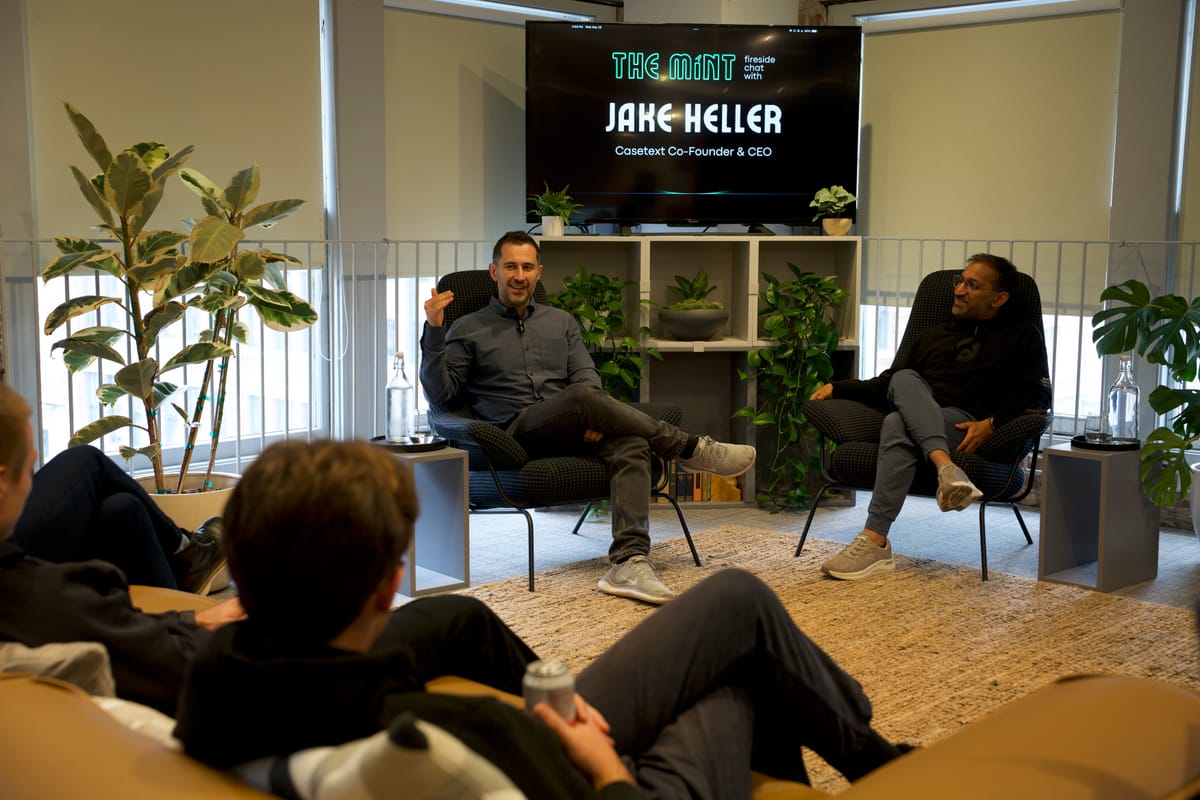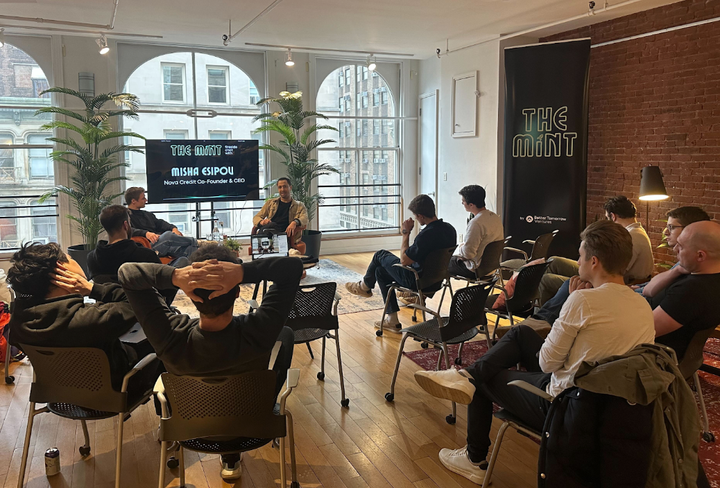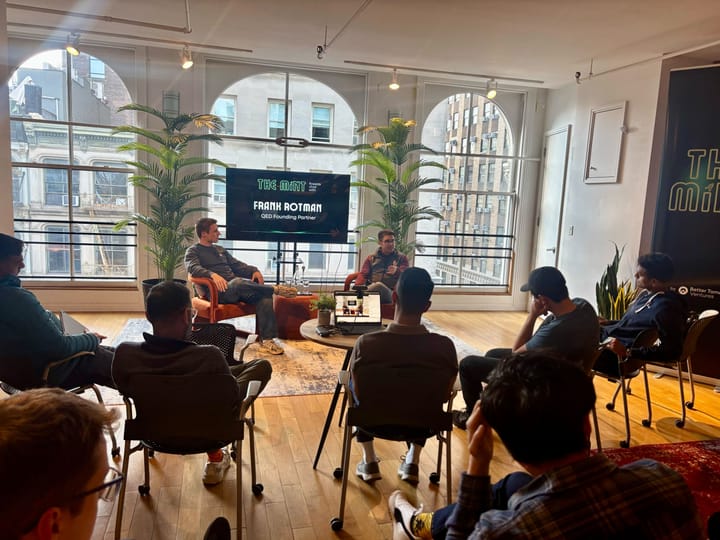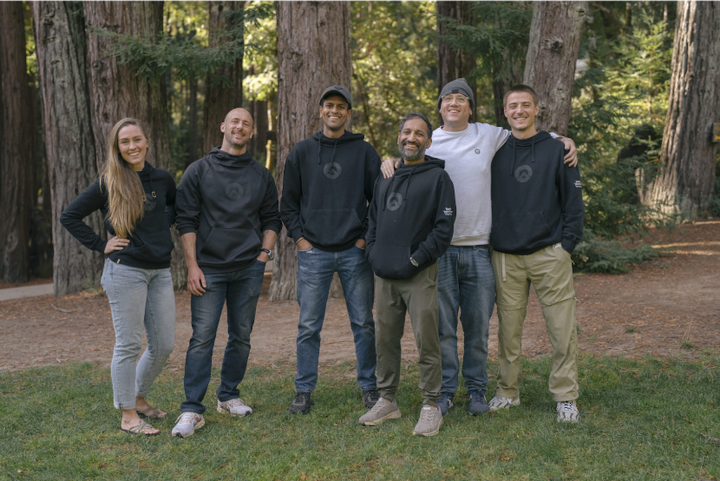The Mint Recap: Fireside Chat with Jake Heller of Casetext

We had the pleasure of hosting Jake Heller, Co-Founder of Casetext, as a special guest at The Mint.
The story of Casetext is a remarkable one: a “Wikipedia for lawyers” that evolved into an AI-powered legal assistant. It became a 10-year “overnight success,” hitting its stride nine years in, and perfectly positioned to capitalize on advancements in AI and GPT-4. In just two months, Casetext tripled (!!) its revenue and was ultimately acquired by Thomson Reuters for $650M in cash.
Jake shared a wealth of insights about founding and growing Casetext. Here are some of our key takeaways:
- Solve real problems for real people.
- Just start building.
- Talk to your customers as much as you can.
- You’ll know when you’ve found PMF.
- Stay as lean as you can for as long as you can.
More below!
1. Solve real problems for real people.
Casetext started with a concept that seemed promising in theory: crowdsourced legal research, inspired by platforms of the times, like Stack Overflow, GitHub, and Wikipedia. However, the idea didn’t work in practice.
Casetext then pivoted to creating tools Jake wished he had as a lawyer, alongside the tools that his customers directly requested.
2. Just start building.
Jake emphasized the importance of building quickly. When you’re pre-product, many people will tell you that your idea sounds great, but once it’s built, those same people might not use it.
Even when pursuing the wrong ideas, customers will only tell you what they really want once you’ve created something. The key for founders is to launch fast, gain users, listen to them, and iterate.
3. Talk to your customers as much as you can.
Jake shared that he held around 20 customer conversations per week, right up until Casetext’s acquisition. These conversations provided invaluable insights into what was working and what needed to be built.
He also established a Slack channel for all customer feedback, which served as a real-time stream of product insights. Jake would then reach out to customers directly, via Slack, to discuss any issues they raised in the channel.
Additionally, he created a rapid response team, comprising engineers, a product manager, & a designer, all tasked with addressing issues within 24 hours.
4. You’ll know when you have PMF.
Jake noted that Marc Andreessen’s 2006 essay on PMF held true. He knew Casetext had found PMF when: (i) the press was knocking on their door, (ii) investors were reaching out, (iii) servers were crashing constantly, & (iv) they couldn’t hire customer support staff fast enough.
He put it simply: “If you think you have PMF but aren’t sure, you probably don’t have it.”
5. Stay as lean as you can for as long as you can.
Jake kept Casetext intentionally small, with only 20-30 people for most of its existence. This lean structure allowed the company to remain agile and iterate quickly based on customer feedback. He warned that larger teams can slow down progress.
Jake shared that if you stick around long enough, opportunities will eventually present themselves. And he emphasized the importance of perseverance + being ready to capitalize on those moments when they arise.



